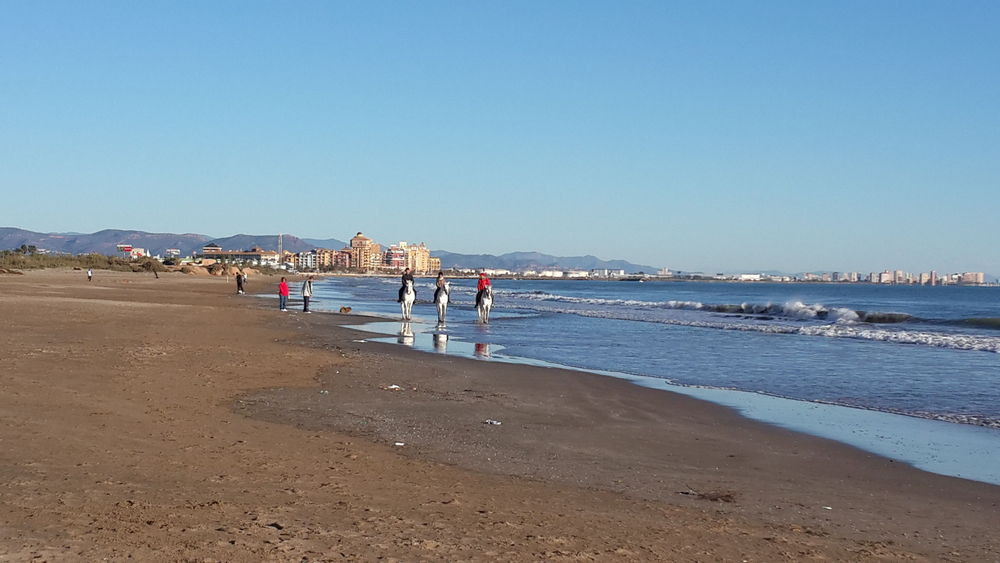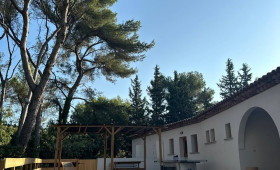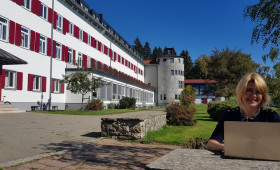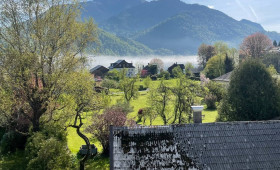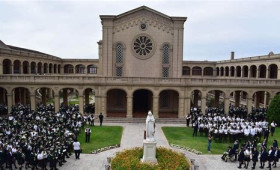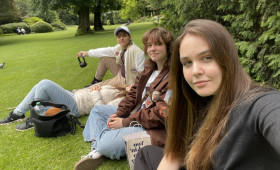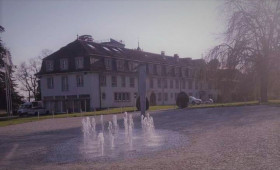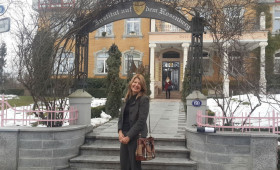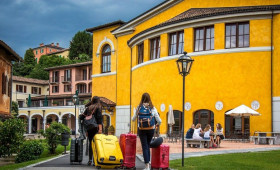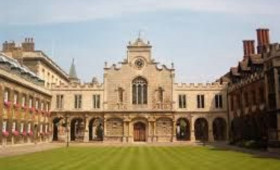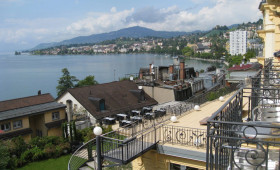Lady Elisabeth school Alicante
03.10.172716
The location of the school the Lady Elisabeth Alicante
Two years ago I spent several months in Valencia and traveled extensively in the region. In one Sunny day, we went to see the town of Altea and the most popular place to buy villas among the Russian – Altea hills.
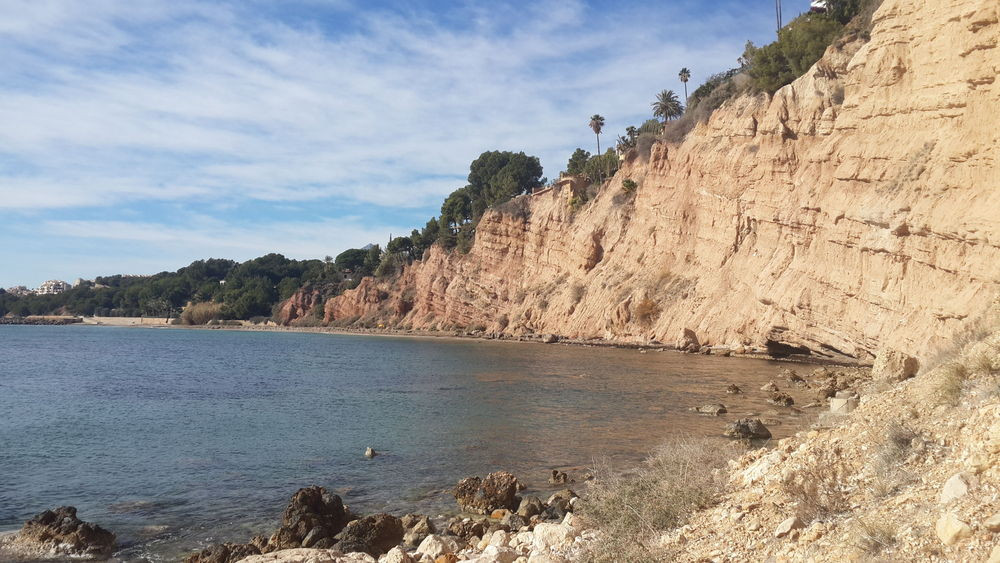
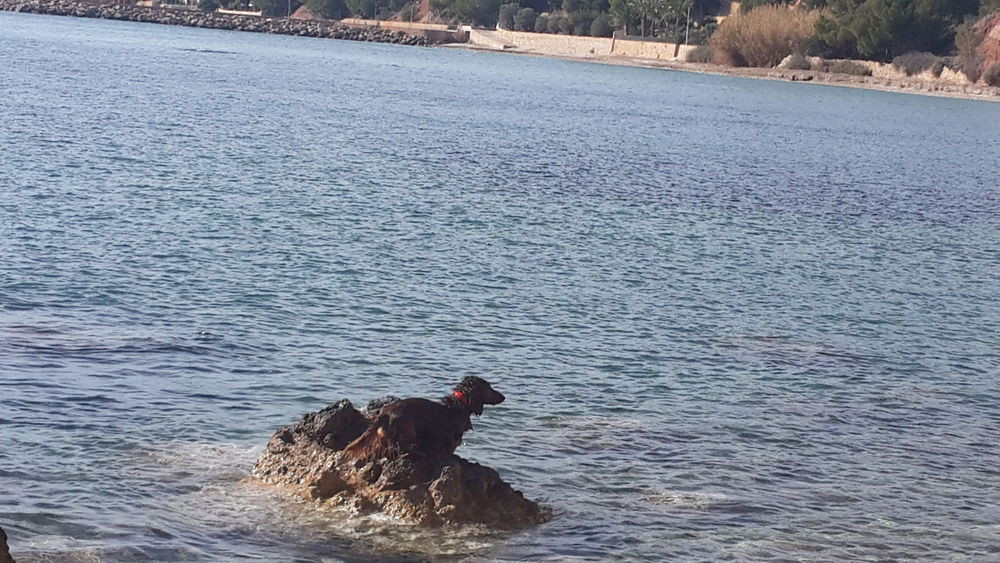
The nature of this land was charming - bright green hills, steep cliffs, wide lagoons. Altea Hills is a place for super expensive villas set in high hills. The Orthodox Church is a very popular meeting place for the Russian population - when we drove past it on Sunday afternoon, bells rang and dozens of young families with children slowly went out to the church square, happily communicating with neighbors and acquaintances. The atmosphere of the village reminded me of Beverly Hills, only instead of the Americans, the Russians predominated here.
Further along the winding coast, we drove to Altea, where we had lunch at a fish restaurant on the embankment and the satellite town Benidorm, where we sat on the observation deck, which has the romantic name of the "Balcony of the Mediterranean Sea".
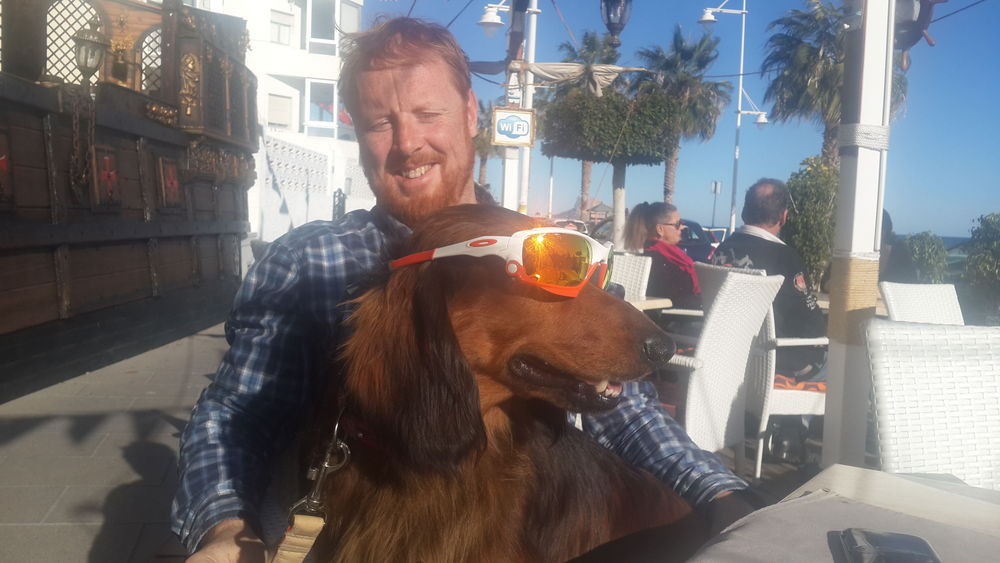
Admired expensive yachts, walked along the embankments. Both cities are bustling and popular with tourists. What struck me was the presence of signs in different languages: shops, medical centers, law firms were full of signs in Russian and English, which I have never seen anywhere else in Spain.
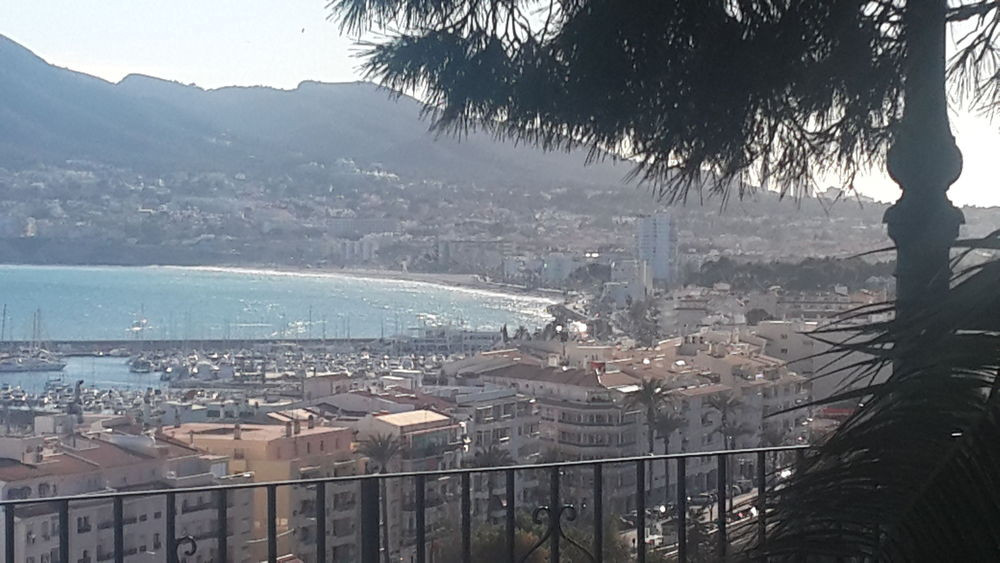
We did not reach Alicante at that time, but we were around the Lady Elisabeth school, and I understand why she appeared in this region.
LADY ELISABETH ALICANTE SCHOOL HISTORY
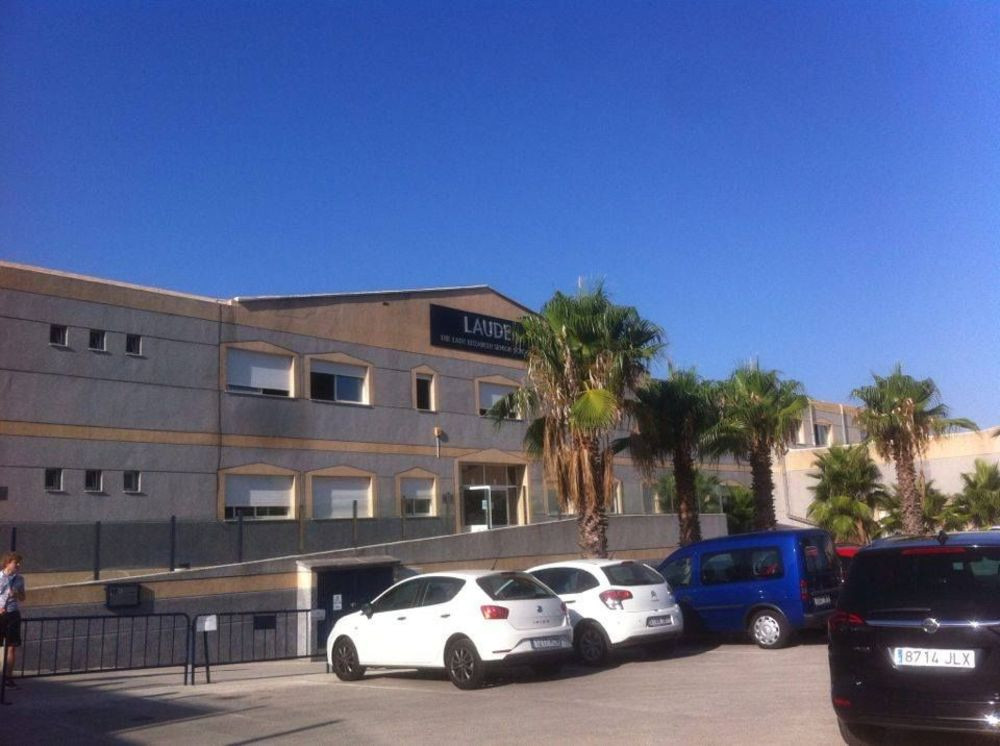 School Lady Elisabeth was opened in 1987, 50 km from Alicante. All these years it worked as a day school for immigrants and Spanish families in the region who wanted to give their children a British education. Two years ago, the school was bought out by the International School Partnership network organization, which currently owns 15 schools: 1 school in the UK (in Cambridge), 7 schools in Spain, 5 in Mexico, a school in the Emirates and Qatar. All schools existed for many years before entering the ISP network, all with their own history and their own program, but now the ISP is trying to bring all schools to one program. Next year, the company plans to buy out 15 more schools in America, Canada, and Singapore. The main idea of the company is the exchange of students in the network of its schools, now it is an exchange between Cambridge and Alicante, where there are already residences and the same educational programs. Even foreign students who came to Spain to study at school for a year can go to study ton Great Britain for 1-2 months. Students cover the difference in cost, but the program does not change, only the country.
School Lady Elisabeth was opened in 1987, 50 km from Alicante. All these years it worked as a day school for immigrants and Spanish families in the region who wanted to give their children a British education. Two years ago, the school was bought out by the International School Partnership network organization, which currently owns 15 schools: 1 school in the UK (in Cambridge), 7 schools in Spain, 5 in Mexico, a school in the Emirates and Qatar. All schools existed for many years before entering the ISP network, all with their own history and their own program, but now the ISP is trying to bring all schools to one program. Next year, the company plans to buy out 15 more schools in America, Canada, and Singapore. The main idea of the company is the exchange of students in the network of its schools, now it is an exchange between Cambridge and Alicante, where there are already residences and the same educational programs. Even foreign students who came to Spain to study at school for a year can go to study ton Great Britain for 1-2 months. Students cover the difference in cost, but the program does not change, only the country.
In 2016, a residence was opened at Lady Elisabeth School: for this, ISP bought two villas for students. 8 people live in one, the second is not yet inhabited, but as soon as there is a need, they will open the second. The school has 1,500 students, including junior school students, of whom 38% are Spaniards, 40% are British, 10% are Russian-speaking - while there are no Russian-speakers in the residence. The largest stream in the school is high school students. In the last two grades, 120 people study in preparation for the A-level: 60 in AS and A2, in the GCSE program by a third less, which means that the school accepts many new students directly to the A-level.
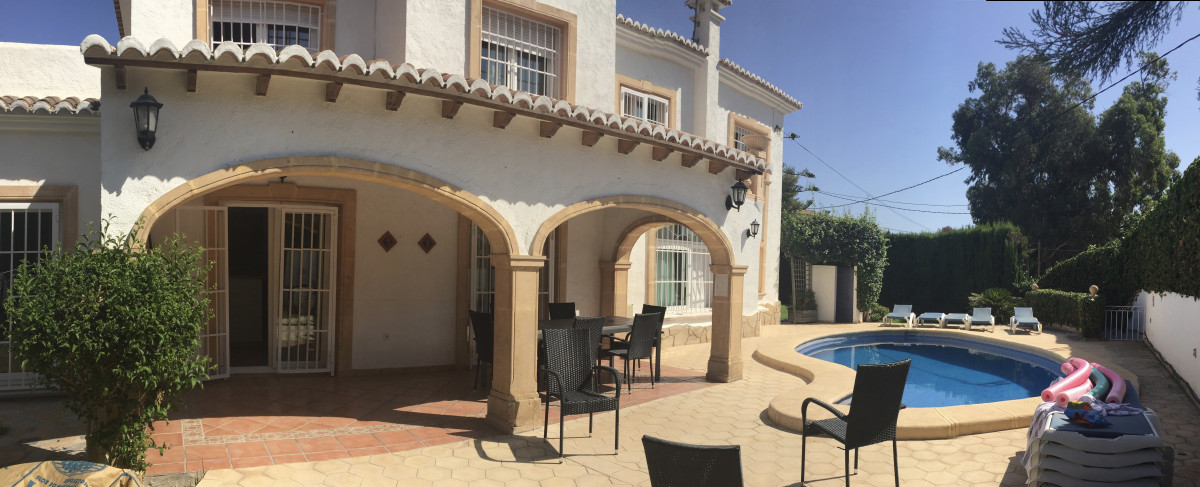
Next year it is planned to buy a hotel with 60 beds, which will be converted into a school residence for Lady Elisabeth. Also, villas will be purchased to open a residence in a school in Malaga, the programs of which are also brought to a single ISP school standard.
LADY ELISABETH ALICANTE SCHOOL CAMPUS
The school is located on the Costa Blanca, halfway from Valencia to Alicante on the outskirts of a small town near the coastal cities of Calpe, Altea, Benidorm, popular among the Russian-speaking population. Student Villas are a 10-minute drive away. Each villa has its own outdoor pool and a cozy courtyard, the villa is managed by a husband and wife who look after the children, prepare breakfast and dinner for them, organize leisure activities and take them to school by minibus.
The school has 2 campuses, one for kids under 11,
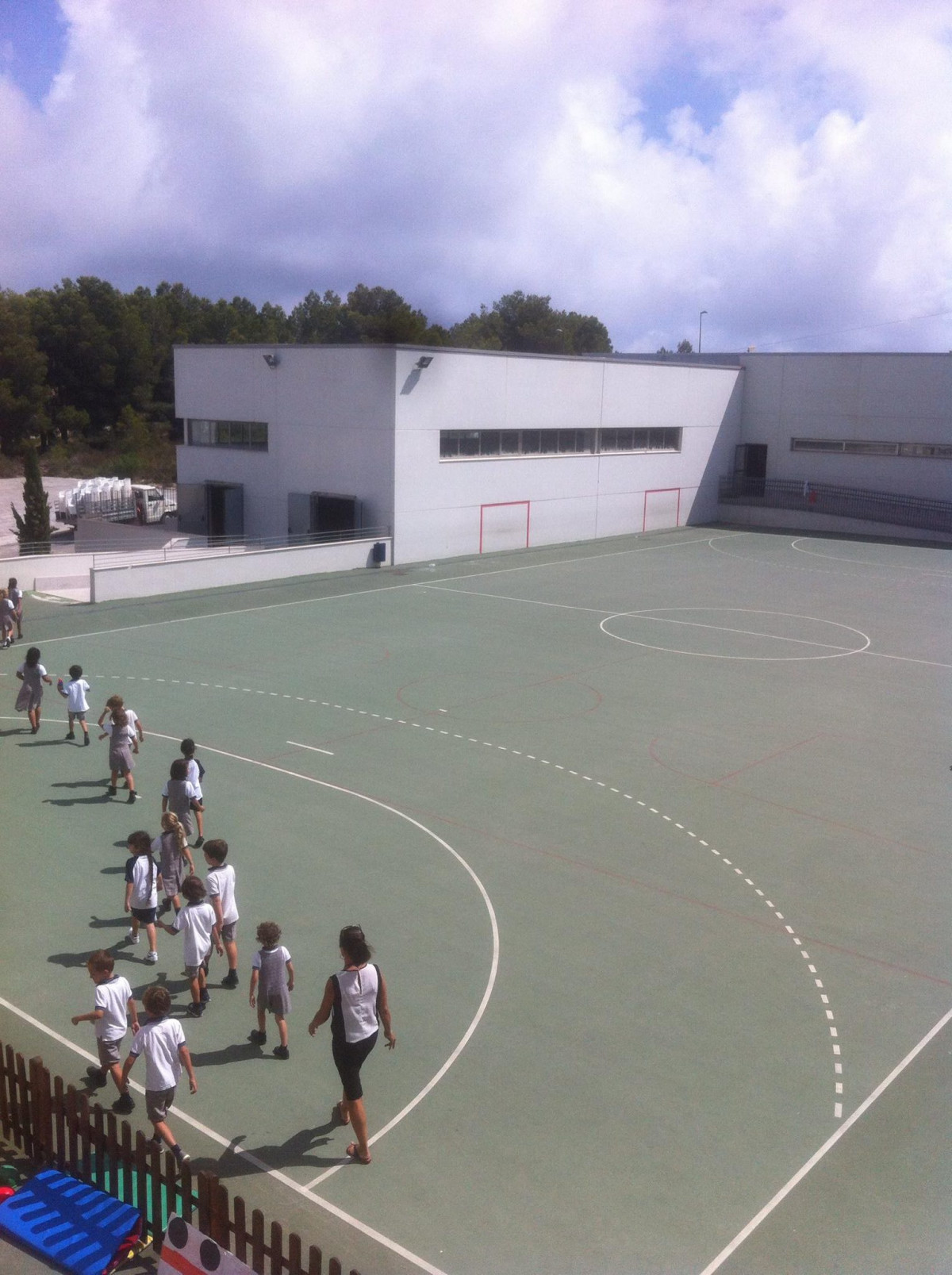
and the second for high school. The campuses are now 15 minutes apart, but the company bought land next to the high school campus to move the junior campus and merge the junior and high schools into one campus.
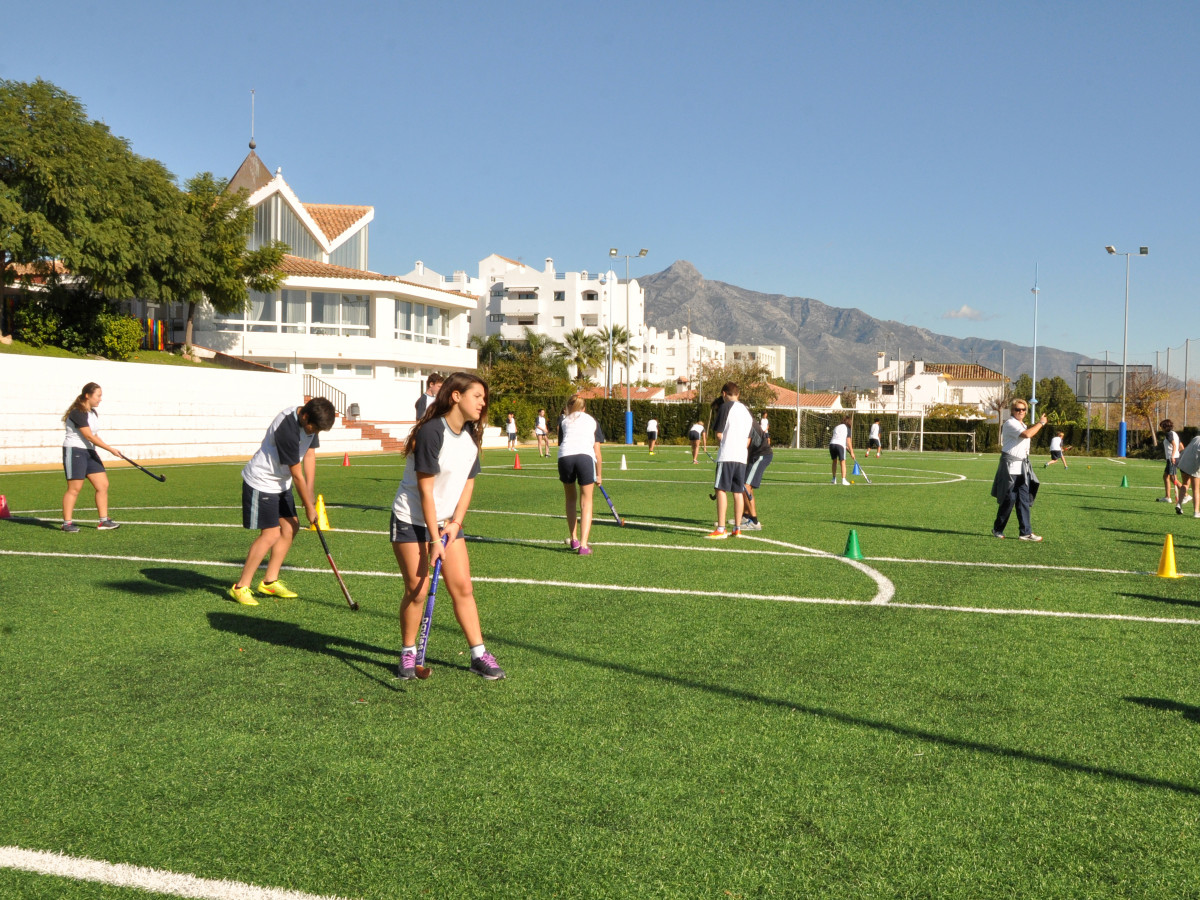 The high school campus has an excellent infrastructure: three science laboratories, music and dance studios, classrooms with interactive whiteboards, art, textiles, library, theater, gym, indoor pool, and school restaurant.
The high school campus has an excellent infrastructure: three science laboratories, music and dance studios, classrooms with interactive whiteboards, art, textiles, library, theater, gym, indoor pool, and school restaurant.
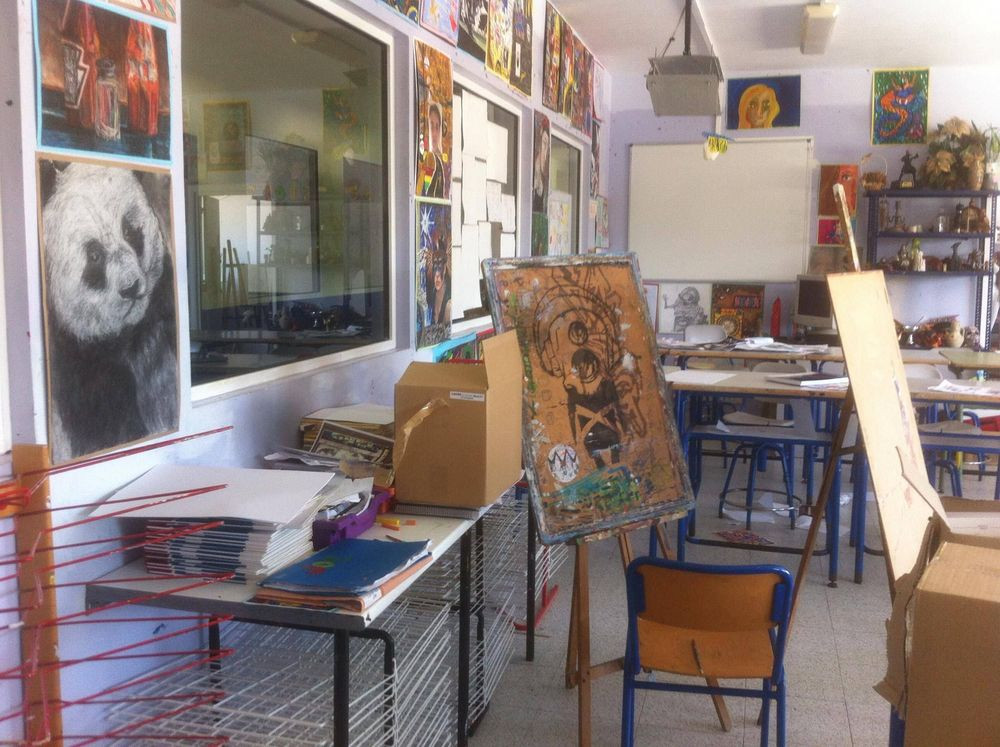
Programs of study at the British school Lady Elisabeth
The school offers to study according to the standard of the British program: GCSE - 2 years and A-level - 2 years. The minimum age to stay at the residence is 14 years old. There is talk to offer an accelerated one-year IGCSE program for international students, as many requests are coming from students who are 15 years old. Students of this age do not qualify for the beginning of training according to the standards of British education, since they are too old for the GCSE program, and too young for the A-level program. But, at the moment, such requests are not enough to open a 1-year program.
In my opinion, for our market, the 2-year GCSE program is the biggest problem. All parents are ready to send their child to a UK boarding school at 15 when they complete their compulsory high school program at home. At the same time, no one wants the child to study abroad for another 4 years. But for the A-level program (stands for Advanced Level), where the study of all school subjects has already been completed and only three selected subjects are being prepared at an advanced level, 15-year-old students are not ready academically, since they did not finish school curriculum at home. And it is not possible to split the GCSE program and start training immediately in the second year of this program, since the program involves preparation for exams to obtain a certificate of completion of secondary education for two years. If a child even misses a semester, then he will skip part of the material and will not be able to show good results in the exam. Alternatively, my advice is to either take the Pre-IB program in the same country, which can be for 1 year or take the 1-year accelerated IGCSE program in the UK.
Lady Elisabeth has a large selection of high school subjects, the largest on the web. Many foreign languages, 4 are taught at the A-level. The school is very strong in arts and sciences. And after the opening of a residence at a school in Malaga, which means the admission of foreign students to this school, ISPs, and therefore agencies, will be able to offer an even greater choice of schools and subjects in Spain.
The school has a lot of staff, there is 1 teacher for 9 students. For example, the GCSE program alone has 30 teachers, while some UK schools overseas employ 10 teachers for the entire school. On the A-level program, there are individual teachers in the following subjects: PE, Drama, Art, Photography, ICT, French, German, Geography, History, Marine Science. In some subjects, since there are several groups in each subject, there are 2 teachers each, namely: Physics, Biology, Chemistry, Mathematics, English Language and Literature, Business Studies.
ADMISSION TO UNIVERSITIES AFTER BRITISH SCHOOL LADY ELISABETH
I very often receive requests to Spain when parents want their child to study in English, but at the same time, they have the opportunity to choose in which country and in which language the child will then study at the university: paid in English or almost free of charge in Spanish.
The school prepares foreign students to study in English-speaking countries, mainly in the UK. Only Spanish students or those who studied in Spain at the age of 14-15 enter Spanish universities since it is during the preparation for GCSE that some subjects are studied in Spanish, which is further taken into account when applying to universities in Spain. All students who want to receive a Spanish diploma, while studying on the A-level course, simultaneously prepare for passing qualifying exams at the end of the school and in Spanish, among them Spanish language and literature, mathematics, geography, art history, world literature, physics, and biology.
Also, a number of students go to US universities. Those who choose this option, in addition to the A-level subjects, take additional preparation for the SAT, at the regular or academic level, depending on where they want to go. Among the graduates of the school, there are students who entered the famous American university MIT.
A list of universities where did the graduates of last year
Birmingham Foundation Academy - Engineering and Physical Sciences Pathway
Sheffield Hallam University - Marketing Communications and Advertising
Universidad de Valencia - Medicine
Universidad de Valencia - Medicine
Queen Mary University of London - Law
CEU de Valencia - Pharmacy
(After a GAP year) Northumbria University - Fashion Communication
(After a GAP year) London South Bank University - Drama and Performance
Universidad de Alicante - Administración de Empresas
Universidad Publica de Valencia - Pharmacy
Universidad Europea de Valencia
Curso Universidad de Shangai China
University College London - Natural Sciences
Newcastle University - Marketing and Management
Universidad de Alemania
Politécnica de Madrid - Ingenieria
Bristol University - Medicine
Universidad de Valencia - Medicine
The University of Essex - International Relations
Universidad de Valencia, EASD
CEU de Valencia - Pharmacy
Universidad Complutense de Madrid - Periodismo
(After a Gap year) University of Arts London - Advertising
The Manchester Metropolitan University - English/Languages
Heriot-Watt University Edinburgh - Engineering
Universidad Camilo Jose Cela de Madrid - Ingenieria
Politecnica de Valencia - Arquitectura
Universidad Europea de Madrid
Universidad de Alemania
University of Portsmouth - Environmental Science
Swansea Metropolitan - Automative Engineering
ESIC de Madrid - Marketing/Publicidad
University College London - Neuroscience
